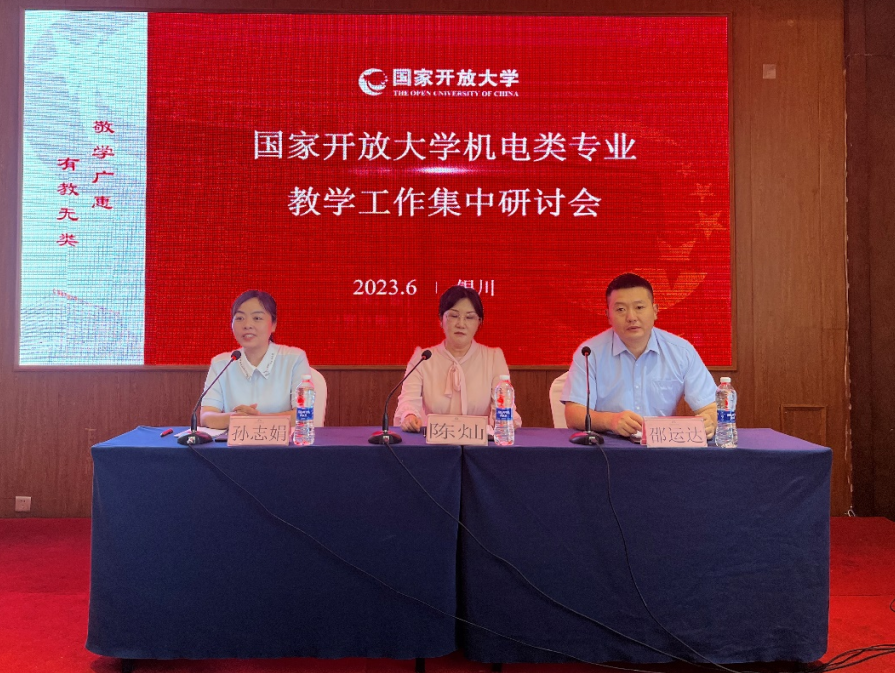 To promote the high-quality development of education and teaching in electromechanical disciplines at OUC, a centralized seminar on teaching in electromechanical programmes was held in Yinchuan, Ningxia Hui Autonomous Region from 6th to 8th June.
To promote the high-quality development of education and teaching in electromechanical disciplines at OUC, a centralized seminar on teaching in electromechanical programmes was held in Yinchuan, Ningxia Hui Autonomous Region from 6th to 8th June.
Over 80 teachers specializing in electromechanical programs from the OUC system attended the seminar, which included thematic lectures, results sharing, and opportunities for exchange and discussion. Chen Can, vice president of Ningxia Open University, was present at the event.

Shao Yunda, dean of the Faculty of Science and Engineering, delivered a thematic lecture closely aligned with the annual priorities of the OUC headquarters. The lecture focused on various aspects, including testing reform, upgrading teaching resources, fostering teaching abilities, refining teaching processes and standards, as well as dissertations. During the lecture, Shao also made arrangements for the next steps in the reform of education and teaching in Science and Engineering.
Sun Zhijuan, vice dean of the Faculty of Science and Engineering, gave a lecture entitled “Making a concerted effort to facilitate high quality development of the electromechanical disciplines”, in which she proposed specific measures to promote high quality development of the electromechanical disciplines in the aspects such as integration of ideological and political education into curriculum system, and building of the virtual platform for practical training.
Li Wei, deputy head of the School of Mechanical and Automation Engineering, presented a lecture titled "Virtual Simulation Platform for Comprehensive Hands-On Training in Mechatronics." During the lecture, Li Wei also introduced the Vehicle Engineering programme. Furthermore, Hao Zhihong, in charge of the Robot Engineering programme in the Faculty of Science and Engineering, provided an introduction to the Robot Engineering programme.
Several teachers from the OUC branches shared and exchanged their experiences and results in various aspects, such as the integration of ideological and political education into the curriculum system, digitalisation construction, the China College Students "Internet Plus" Innovation and Entrepreneurship Competition, and virtual experiments.

During the group discussion session, the attending representatives engaged in in-depth exchanges and discussions regarding the problems and challenges they encountered in their professional teaching. They also provided valuable comments and advice on how to coordinate the overall teaching work within the OUC system, specifically within the Faculty of Science and Engineering.
The workshop, characterized by its rich content and clear priorities, elucidated the goals for future work in the electromechanical disciplines. It fostered stronger connections among teachers throughout the system and effectively facilitated the high-quality development of the electromechanical programmes.
Written by Hao Zhihong, photographed by Wang Qian, OUC